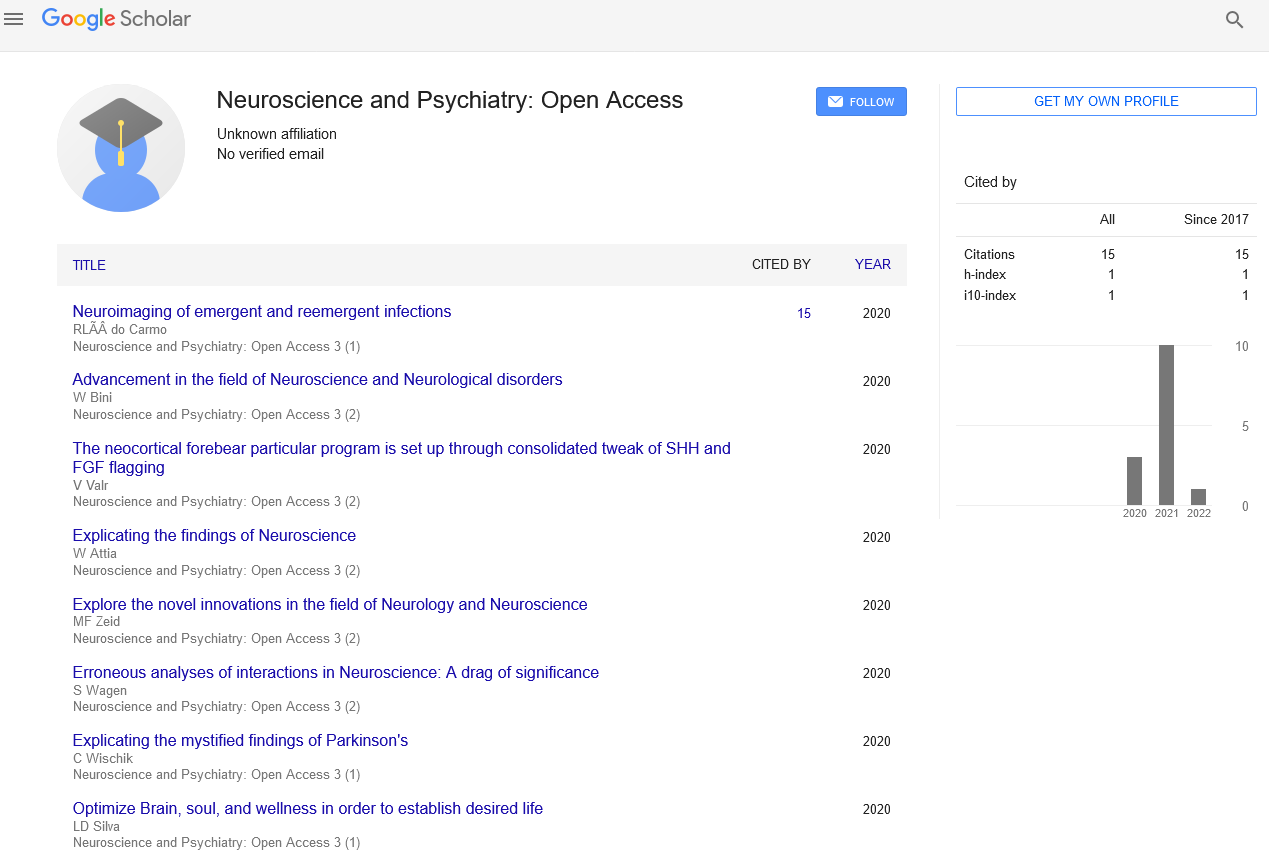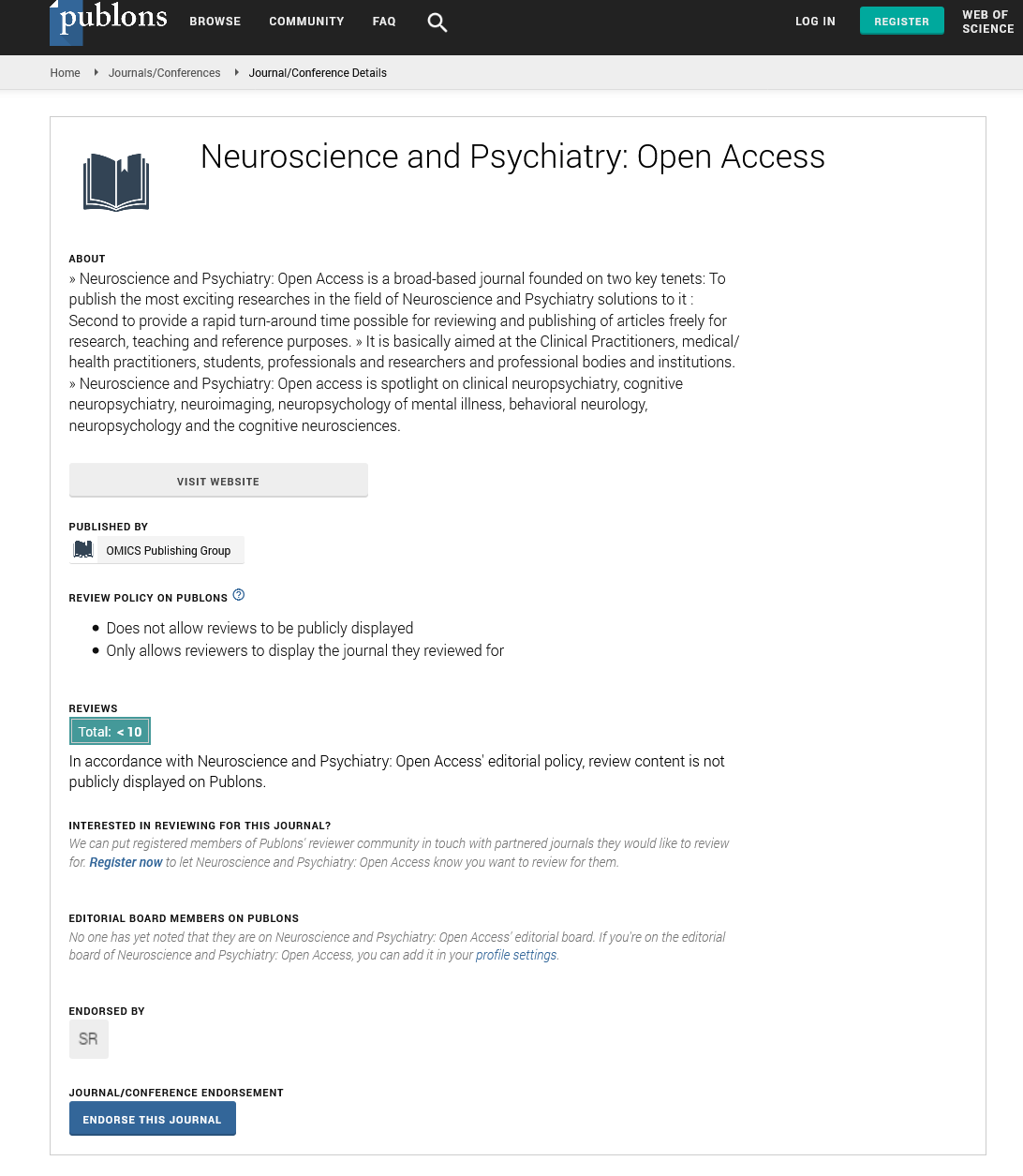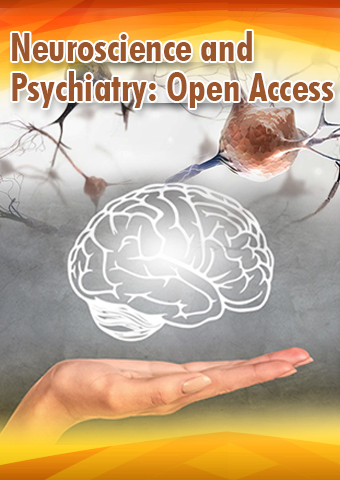Commentary - Neuroscience and Psychiatry: Open Access (2024) Volume 7, Issue 3
Unlocking the Mysteries of Neuropsychiatry: Bridging Neuroscience and Medicine
- Corresponding Author:
- Yoshiyuki Nishio
Department of Psychiatry and Behavioral Neurosciences, The University of Tokyo, Tokyo, Japan
E-mail: nishiok3@gmail.com
Received: 23-04-2024, Manuscript No. NPOA-24-133882; Editor assigned: 26-04-2024, PreQC No. NPOA-24-133882 (PQ); Reviewed: 10-05-2024, QC No. NPOA-24- 133882; Revised: 20-05-2024, Manuscript No. NPOA-24-133882 (R); Published: 27-05-2024, DOI: 10.47532/npoa.2024.7(3).218-219
Description
Neuropsychiatry stands at the forefront of modern healthcare, blending the intricate realms of neuroscience and medicine to unravel the complexities of the human brain and its impact on mental health. In this comprehensive exploration, we delve into the origins, advancements, challenges, and promising avenues within the realm of neuropsychiatry, shedding light on its pivotal role in shaping the future of healthcare.
The genesis of neuropsychiatry
The roots of neuropsychiatry can be traced back to the pioneering work of early scholars such as Emil Kraepelin and Alois Alzheimer. Kraepelin’s groundbreaking efforts in classifying psychiatric disorders based on biological underpinnings laid the foundation for a more nuanced understanding of mental illness. Concurrently, Alzheimer’s seminal research on neurodegenerative conditions, particularly Alzheimer’s disease, underscored the organic basis of cognitive and behavioral disturbances.
Neuroscience unveiled: The brain-mind connection
At the heart of neuropsychiatry lies the exploration of the brain’s intricate architecture and its profound influence on cognitive, emotional, and behavioral domains. Advancements in neuroimaging technologies, including Magnetic Resonance Imaging (MRI), Positron Emission Tomography (PET), and functional MRI (fMRI), have revolutionized our ability to peer into the inner workings of the brain.
Through these imaging modalities, researchers have uncovered structural abnormalities, aberrant neural circuitry, and neurotransmitter dysregulation implicated in various neuropsychiatric disorders. For instance, studies elucidating the dopaminergic pathways in conditions like schizophrenia have reshaped diagnostic paradigms and therapeutic approaches, emphasizing the role of neurobiology in mental health.
Navigating diagnostic complexity
Neuropsychiatric assessments encompass a holistic approach that integrates clinical evaluations, neurocognitive testing, and neuroimaging findings. This comprehensive evaluation aids in differentiating primary psychiatric disorders from secondary manifestations of neurological conditions, guiding tailored interventions for optimal patient outcomes.
The diagnostic landscape of neuropsychiatry spans a diverse spectrum, encompassing mood disorders, psychotic disorders, neurodevelopmental disorders, neurocognitive disorders, and substance-related disorders. Precise phenotyping, coupled with biomarker discovery and genetic profiling, heralds a new era of personalized medicine within neuropsychiatry.
Therapeutic frontiers: From pharmacology to psychotherapy
Treatment paradigms in neuropsychiatry embrace a multimodal approach that combines pharmacotherapy, psychotherapy, and adjunctive interventions. Psychotropic medications targeting neurotransmitter imbalances form the cornerstone of pharmacological interventions, offering symptom relief and stabilizing neurochemical pathways.
In tandem with pharmacotherapy, evidence-based psychotherapeutic modalities such as Cognitive-Behavioral Therapy (CBT), Dialectical Behavior Therapy (DBT), and mindfulness-based interventions foster psychological resilience and promote adaptive coping strategies. These therapeutic alliances empower patients to navigate life’s challenges and cultivate a sense of agency in their mental well-being.
Emerging horizons and translational insights
The frontiers of neuropsychiatry are continually expanding, propelled by advances in genetics, neuroinflammation, neuroplasticity, and translational research. Genomic studies elucidating susceptibility genes and polygenic risk scores hold promise for early detection, prognostication, and targeted interventions tailored to an individual’s genetic profile.
Moreover, the burgeoning field of neuroimmunology unveils the intricate interplay between the immune system and central nervous system, offering novel avenues for immunomodulatory therapies in neuropsychiatric conditions. Harnessing neuroplasticity through neuromodulation techniques, including Transcranial Magnetic Stimulation (TMS) and Deep Brain Stimulation (DBS), showcases the transformative potential of brain-based interventions in reshaping neural circuitry and ameliorating symptoms.
Navigating challenges, embracing opportunities
While strides in neuropsychiatry are met with optimism, the field grapples with challenges ranging from stigma reduction and access to care to ethical considerations in emerging technologies. Destigmatizing mental illness, fostering public awareness, and advocating for equitable mental healthcare remain paramount in advancing the neuropsychiatric agenda.
Neuropsychiatry embodies a convergence of scientific inquiry, clinical expertise, and compassionate care, illuminating the path towards holistic well-being and mental flourishing. By fostering collaborative partnerships, embracing innovation, and championing patient centered approaches, neuropsychiatry paves the way for a future where every individual can realize their full potential and resilience in the face of neuropsychiatric challenges.


